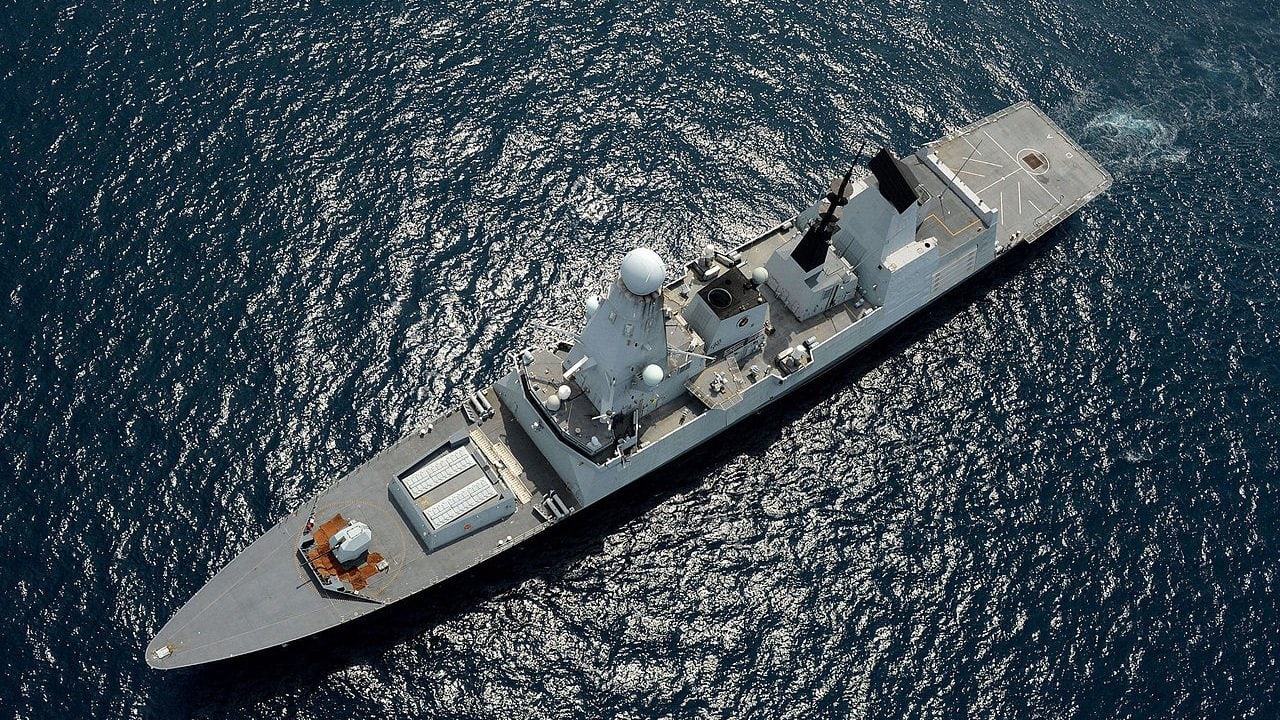The UK holds significant economic and trade interest in the Arabian Gulf. However, the recent decision to decommission two warships, HMS Westminster and HMS Argyll, and reduce the number of frigates in its surface fleet to nine undermines these interests.
A new report by the Henry Jackson Society identifies that this move by the UK could weaken its capacity to safeguard its economic and trade interests in the Gulf. This comes at a time when Iranian proxies, such as the Houthis, are escalating attacks throughout the region and China’s influence in the Middle East is increasing.
According to Michael Clarke, Specialist Advisor to the British Joint Committee on National Security Strategy, the UK currently has 18 frigates and air defence destroyers. This is significantly below his estimation that it would require at least 30 to project power in the Gulf.
In early 2024, Lord West, the former First Sea Lord, expressed his concern: “With the number [of warships] we’ve got, if we get involved in any action, we are really poorly placed. If the Government had taken seriously the issue of frigate numbers over the last 10 years, there would be sufficient to meet the requirements of trade protection in the Red Sea.”
While a degree of interoperability between UK forces and US military platforms continues through joint exercises, such as the International Maritime Exercise (IMX), the reduction of the UK fleet naturally impacts upon Britain’s ability to work with its allies.
IMX, dubbed “the second largest naval exercise in the world”, served as the basis for Operation Prosperity Guardian. The operation was tasked with serving as a maritime protection force in the Southern Red Sea and the Gulf of Aden, following drone and rocket attacks launched by Houthis at merchant vessels. Tensions rose further when UK and US warships were also targeted.
However, by reversing this downward trend and increasing military spending to 2.5% of GDP, the UK could achieve greater interoperability with the US’s more advanced military platforms.
This shift could strengthen the regional integration facilitated by the Abraham Accords. It would mean that the US and UK could more effectively counter Iran’s proxies – the Houthis, Hamas, and Hezbollah. These groups seek to undermine the Abraham Accords, which Tehran deems a strategic obstacle to its geopolitical aims.
Concurrently, the UK and US could collaborate to blunt China’s expanding influence in the region. In a testimony to the US Senate’s Armed Services Committee, in March 2023, Gen. Michael Erik Kurilla, commander of US Central Command stated, “The People’s Republic of China has chosen to compete in the region. The PRC is aggressively expanding its diplomatic, informational, military and economic outreach across the region.”
The diminishing presence of the US in the Middle East has prompted China to step in as an additional security provider in the region. This shift in dynamics was evident when China played a mediating role in brokering the Iran-Saudi deal last March.
More recently, both the US and the UK have urged Beijing to pressure Tehran into reining in the Houthis after their assaults on shipping vessels in the Red Sea – a move symbolic of the West’s reduced influence in the region.
Both China and Iran share the same strategic objective – for the US to withdraw from the Middle East. The former seeks to attract Abraham Accords’ signatories away from the West’s sphere of influence, while the latter seeks to scupper the deal by promoting terrorism and regional instability.
The UK’s partnership with the Abraham Accords can help mitigate this by promoting deeper military and economic cooperation among the Accords’ signatories. Failure by the UK to prioritise an increase in military expenditure could leave global supply chains at the mercy of nefarious actors, with Iran free to carry out unchecked aggression in the region.
Barak M. Seener is a Senior Research Fellow at The Henry Jackson Society and the author of Unfreezing the Abraham Accords: A New Transatlantic Strategy for Greater Peace, Stability and Integration in the Middle East

